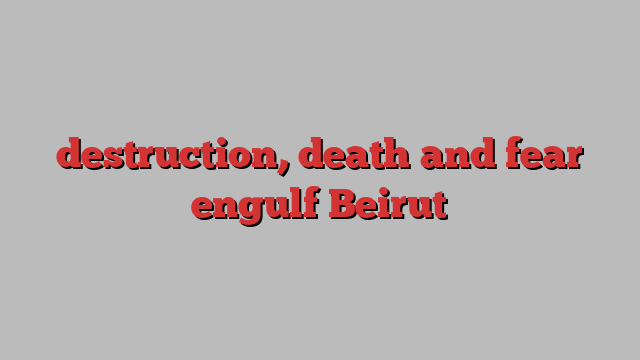
The blasts could be heard throughout Beirut, an earth-shaking thunder that rolled across the city on Friday evening. For Doctor Jihad Saadeh, director of Lebanon’s largest public hospital, it was the beginning of a sleepless night full of carnage.
Saadeh’s private clinic was just a few hundred metres away from the target of Israeli jets that dropped bombs on at least six residential buildings that collapsed before his eyes. Their aim was to kill Hassan Nasrallah, the leader of Hizbollah, who was confirmed dead on Saturday.
“We saw the jets of red smoke shoot up into the sky, the buildings just collapsed,” he said. He had raced from his clinic to the Rafik Hariri hospital to ready his staff.
“We got only bodies at first,” he said. “The buildings just collapsed. All of them were below the rubble. There were no injuries, just fatalities.”
The bombing wreaked havoc across Lebanon, from Beirut’s southern suburbs to the Bekaa Valley in the east and across the south. Israeli warplanes pummeled areas far from Hizbollah’s traditional pockets of support, including in Mount Lebanon and Chouf.
Massive plumes of orange and red smoke billowed from between Beirut’s densely-packed apartment buildings as the sound of sirens filled the city that endured at least 11 air strikes on Friday night and Saturday morning, according to Lebanese state news.
The strikes that killed Nasrallah flattened multiple residential buildings. When the sun rose, a massive crater left by the bombs in Dahiyeh, was visible from the hills surrounding Beirut.
Lebanon’s health ministry asked hospitals near Beirut that had not been struck to stop accepting non-urgent cases to make room for patients who were being evacuated from hospitals in the capital’s southern suburbs.
The bombings killed at least 11 people and injured 108, the health ministry said on Saturday. That is probably an undercount as it represents only hospitals that reported their data to the ministry.
A tense period of mourning took hold in Beirut in the hours after Hizbollah confirmed Nasrallah’s killing on Saturday. Shops closed across the city.
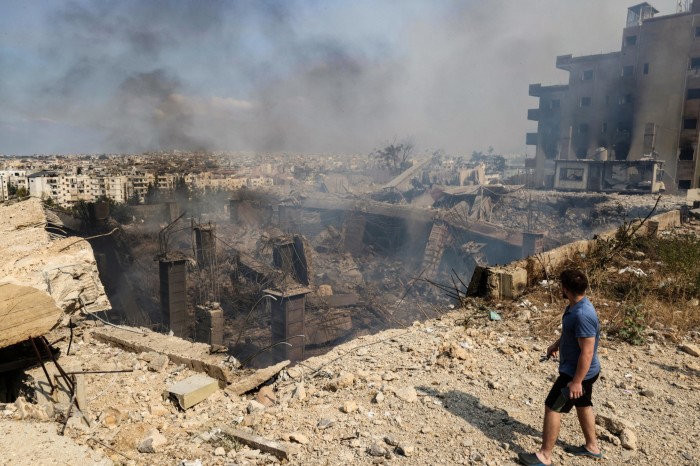
Israel, meanwhile, continued its assault against Hizbollah, saying it had killed another of the group’s commanders in a strike on Dahiyeh on Saturday, the southern suburb where Nasrallah was assassinated. As its drones buzzed incessantly over Beirut, the Israeli military vowed to keep up its attacks.
Many families who fled their homes were dazed and frightened, struggling to come to terms with what had happened.
After assassinating Nasrallah on Friday night, the Israeli military warned residents of Beirut’s southern suburbs to evacuate for “your safety and the safety of your loved ones” as it prepared to step up its bombing campaign.
The orders, posted on social media platform X, sparked fear as they marked specific buildings across neighbourhoods, identifying them by the families that lived there or the cafés on their bottom floors. It told residents living there and in the surrounding buildings to leave immediately because the Israeli military would be “forced to act against these [Hizbollah] interests in the immediate future”.
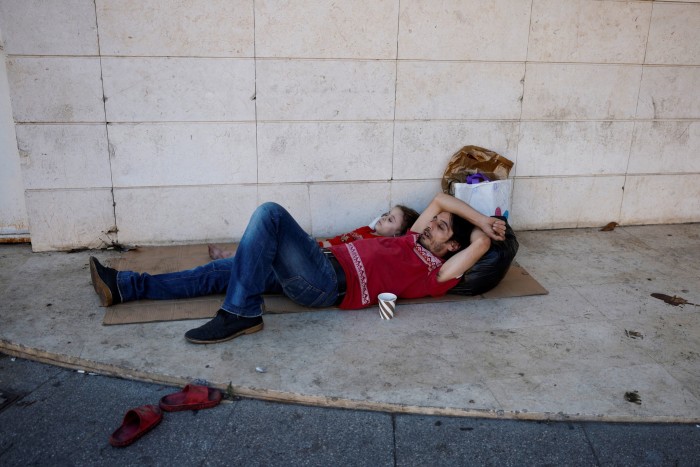
Residents of the Burj al-Barajneh Palestinian refugee camp in Beirut’s southern suburbs said panic spread rapidly through its narrow alleys and concentrated buildings when Israel warned that the surrounding neighbourhood would be bombed.
One woman from the camp, a Palestinian refugee who had fled Syria to Lebanon in 2012, had to run again on Friday night, this time to a seaside walkway.
“We fled from the horror. As soon as we heard the evacuation orders, we left,” she said. Her family stood on the side of a dark highway as the sound of air strikes reverberated around them before a van finally offered them a lift.
“We’re definitely not going back. They’re still bombing,” she said.
All around her were families who had made the same journey. As the sun climbed higher along Beirut’s corniche where the refugees had sought sanctuary, exhausted fathers strung blankets between palm trees to create shade for their families.
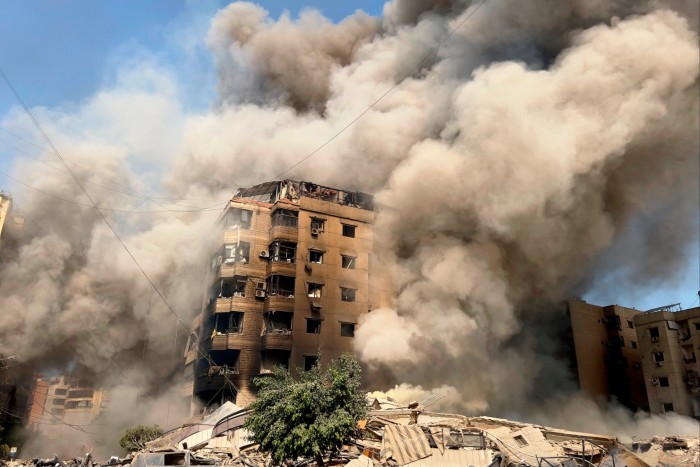
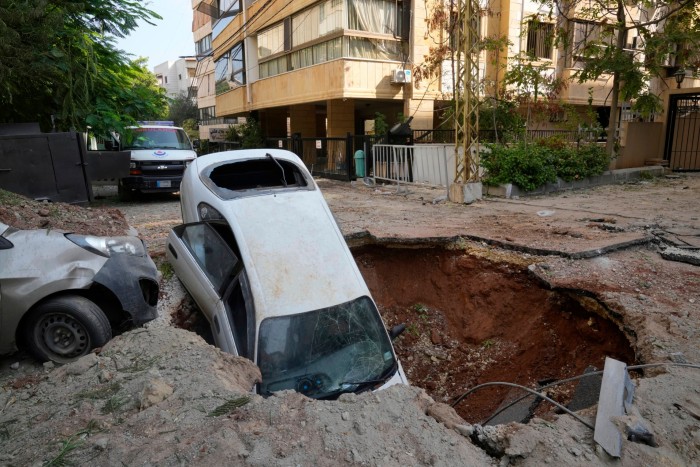
Plastic bottles and potato chip bags littered the walkway that would normally be thronged with joggers and ping-pong players. Instead, children and grandparents sat on the ground eating bread and drinking tea that had been passed out by volunteers.
Fatima, an 18-year old girl who asked that her real name not be used, had fled from the suburb of Lailaki with her family after midnight. When the bombings first started on Friday evening, they initially decided to remain in their home.
But the explosions were so intense, so loud and so close that she lost consciousness.
“I fainted,” she said. “Our house became like paper,” she added, moving her hand to show the way her home had seemed to fold and shake.
The family decided to leave only after the Israeli military issued evacuation orders for houses in their neighbourhood
Surrounded by her suitcases on the seaside boardwalk, Zaynab, Fatima’s aunt, said she did not know where she would go next or if she would be able to return to her home.
“We don’t even know if our house is still there to go back to,” Zaynab said.